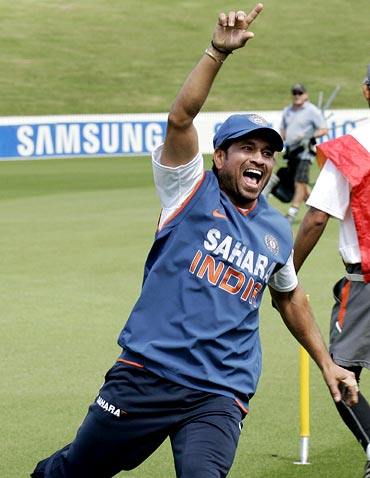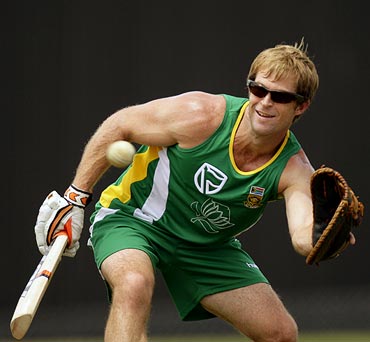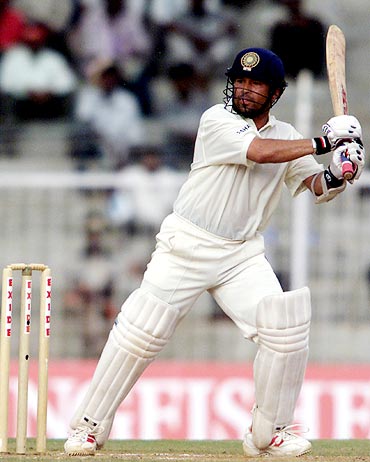 | « Back to article | Print this article |
Cook will always be remembered for his first ball dismissal
Jimmy Cook was South Africa's finest opening batsman of the 1980s and would have made many centuries had there been opportunities then to play international cricket. He did finally get the chance years later at the age of 39 years and 105 days.
Omar Henry made his debut in the same match at the age of 40 years and 295 days to become South Africa's oldest debutant ever.
But Cook will always be remembered for his first ball dismissal when the Proteas played their first ever home Test match against India at the Kingsmead stadium on November 13, 1992. The legendary Kapil Dev opened the bowling, produced a perfect away swinger to find the outside edge of Cook's bat and Sachin Tendulkar did the rest at third slip.
In that moment Cook became the first player ever to be dismissed to the first ball of a Test match that was the first ever five-day meeting of the two countries concerned.
When Rhodes caught Tendulkar short
It was a match in which Tendulkar was to be involved in history in the making on two occasions. The second came when he was run out by the combined efforts of Jonty Rhodes (who else?) and Andrew Hudson, the current convener of the South African selection committee.
A glance at the records will show that it was a pretty conventional run out. Rhodes flicked the ball in from his customary backward point position and Hudson, who was fielding under the helmet at short leg, was up to the stumps to break the wicket.
What made it unique at the time was that it was the first run out in the history of the game to be decided by the third umpire on television evidence. For the record Cyril Mitchley (there was only one so called neutral umpire in those days) was the umpire who made the referral and Karl Liebenberg was the umpire who pressed the green button.
In those days green represented 'out' and red represented 'in'. From the time that Mitchley signaled to Liebenberg until the time that Liebenberg pressed his button 35 seconds elapsed.
The longest hat-trick in the history of Tests
In the next Test at the Bidvest Wanderers Stadium Tendulkar scored the first of his six centuries against the Proteas while Rhodes was again involved in a technology decision or to put it more correctly the lack of one!
The Proteas had lost four wickets for 26 runs and were in a lot of trouble. TV replays showed that Rhodes (then 28) was run out comfortably but umpire Steve Bucknor failed to refer it to the third umpire, Rhodes survived and went on to make 91. Like the first encounter at the Kingsmead stadium both these matches were drawn.
The Kingsmead encounter lost the entire fourth day to the weather with the result that the Proteas could only bat out the last day after India had obtained an inconclusive advantage on the first innings.
The Indian highlight was provided by their No. 6 batsman, Praveen Amre (he later played for Boland as an overseas professional), who made a century on debut and rescued his team from 128/6 in a 101-run partnership for the eight wicket with wicketkeeper Kiran More.
One of the more senior Indian journalists shook his head when Amre reached three figures. "Indian players who score centuries on debut rarely repeat the feat," he remarked. Those turned out to be wise words indeed because it was the only Test century of his career. He nevertheless finished with a solid average in the low 40s.
That was the first of three Test matches to have been played against India at the Kingsmead stadium to date. The Proteas have won two and drawn one and there is bound to be more drama when the fourth edition unfolds from Sunday.
Footnote: Kingsmead can claim the longest hat trick in the history of the game. Mike Procter dismissed John Gleeson and Alan Connolly with successive balls to win the Test against Australia on February 9, 1970. Cook's dismissal by Kapil was the next ball to be bowled in a Test match at Kingsmead on November 13, 1992!


